Palauan Women Break The Political Glass Ceiling
03rd May, 2017

(Left to right) Sen. Uduch Senior, Sen. Rukebai Inabo, Delegate Victoria Kanai, and Delegate Dilami Saiske
Palauan women have achieved another milestone. After more than 30 years, two women made it to the House of Delegates (HOD) and two won another term in the Senate. So, in the upcoming 10th Palau Congress, there will be four Palauan women joining this political institution which had been predominantly composed of men.
In total, 13 women ran for a seat in the Palau Congress.
Senators J. Uduch Sengebau Senior and Rukebai Inabo; Airai Delegate-elect Vicky Kanai and Ngarchelong Delegate-elect Dilmai Saiske, who won seats in Congress, share some commonalities. All four women also had their first career outside politics and had established their socio-economic independence and confidence before formally entering politics.
Uduch Senior is a lawyer. Prior to her taking a seat in the Senate, she was working for a private law firm.
While this is her second term in the Senate, she said there are still challenges for women to enter politics. One is the financial capability to campaign. As an incumbent, it was easy for her to campaign, but for the newcomers in politics; it’s hard to win when you run on a limited budget.
“It’s a big challenge for women, who are not in office like myself and have families,” Uduch Senior said.
She added that she was able to contribute during her first term by “bringing attention and awareness of social issues, juvenile delinquency concerns, and being able to take care of mothers through the maternity leave bill.”
She said it is still a man’s world. The Palau Congress has 29 members but only four women were elected. Representation is still small but the 2016 Palau election yielded a new wave of women lawmakers who are ready to bring changes in 2017.
Besides financial constraints, culture also hinders acceptance of women in politics.
“Being a woman, you have to overcome cultural barriers. Women are in supportive roles, they are not supposed to be the one who get up and speak,” Inabo said.
However, she said the barrier could be overcome if women would show that they can be leaders.
Inabo held the post of Senior Auditor at the Office of the Public Auditor for five years. She also served as Comptroller/Chief Financial Officer at PPLIC and VP Business Banking for the Bank of Hawaii, and headed the Palau Public Utilities Corporation as a CEO.
Inabo agrees that despite their educational background, they still face more challenges than their male counterparts,
“You have to be tough, you really have to fight hard and put your foot down. You really have to prove yourself so that they will believe you, trust you and agree with you,” Inabo said.
With her financial background, Inabo said she brings a unique set of skills to Congress. Her legislation during her first term focused on social services and raising benefits for the people.
According to the women, perceptions have changed; that men and women can share equal stature, knowledge and experience.
For Saiske, who won as Ngarchelong Delegate, men and women can be equal in their roles in society. She also agreed that it is no longer a “man’s world.” “That’s why I am running,” she said.
Saiske spent over 25 years of her career as a teacher, mentor and counselor. She said that while she ran for public office before and lost, that did not make her lose faith in her goal to be a public servant. As a former educator, she will focusing on education and youth development.
Meanwhile, Kanai said she will give emphasis on consensus-building in office, adding that her previous experience will help her become an effective lawmaker. The two-term Governor of Airai is not new to politics. Described as an endearing leader, Kanai ran unopposed for the delegate seat.
Kanai planned to retire from politics in 2014 but the pull of public service made her to reconsider. She said being a woman leader has its advantages, which gives her confidence in working well with her male colleagues.
As mothers, wives and sisters, women are better at building relationships, according to Kanai.
Kanai said she will push or support for the enactment of bills providing better protection of women against domestic violence. She also plans to support a bill granting maternity leave. The bill was passed in the Senate but transmittal to the HOD had been stalled.
While female politicians are still outnumbered by their male counterparts today, the four lawmakers are encouraged by the growing number of talented women in Palau.
They are hoping that more women would enter politics in the future. They are also hoping that a bigger representation will further change gender roles in society.
[Source: Pacific Note, December 7th, 2016]

